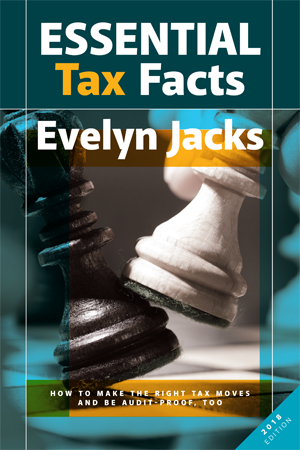Last updated: November 12 2018
Eldercare: Adjusting for The High Cost of Financial Comfort

How much income do Canadians think they need annually to lead a comfortable life and how realistic is it? According to a poll by Edward Jones, it’s a figure that’s over $250,000—one that could grow as interest rates and the needs of the elderly continue to rise. It’s a topic that created a vibrant conversation at the Distinguished Advisor Conference which concluded yesterday in Quebec City.
With Canada’s median income sitting at $56,000,* there is a clear need for savvy advisors who can provide tax-efficient strategies and comprehensive retirement income planning.
But there is more to think about. Alexis Verganelakis, VP with Franklin Templeton told more than 150 delegates from the tax and financial services that elderly clients can be overwhelmed by the high costs of elder care, not to mention the real threat of vulnerably to abuse and exploitation. It’s an opportunity for tax and financial advisors to have a deeper discussion to rethink financial expectations for later life.
Proactively approaching the issue can be an important value-add, given the big discrepancy between how much money Canadians think they need to live well, and what they actually make. While Edward Jones reported that Canadians feel comfortable living would be possible with $250,000 in annual income, those responding to the survey said that it would take $300,000 in pre-tax income to lead their desired lifestyle.
Interestingly, Millennials were the lowest with their income requirements, stating that they’d need $166,622 to be comfortable. Conversely, pre-retirees and retirees in the age 55 to 64 age group had the highest income requirements, suggesting that they would need $398,347; however, they also said they’d need about $70,000 less to actually lead their desired lifestyle, citing retirement savings and other financial responsibilities (like providing support to loved ones) among the reasons for the higher estimated figure.
ones) among the reasons for the higher estimated figure.
But has anyone discussed the costs of elder care in this equation, and who is responsible for it? “It’s an opportunity for advisors to engage their 55 to 64 year-old clients – an ideal age for financial continuity planning – and their millennial offspring,” says Evelyn Jacks, Founder and CEO of Knowledge Bureau, which celebrated its 15th Anniversary at DAC in Quebec City. “The two generations will need to include the drawing up of important legal documents like a Power of Attorney, a Will and a Living Will or health care directive in their planning.”
The Edward Jones report also revealed that many Canadians aren’t comfortable with their current income level; unfortunately, they’re soon going to feel the pinch even more. Earlier this month, Bank of Canada Governor Stephen Poloz noted that the global economy has found stronger footing after recovering from the 2007-08 financial crisis. A promising development, but also one that sets the stage for further interest rate increases, potentially to a “neutral level” of 2.5 to 3.5 percent. After the fifth consecutive increase in a row, the Bank of Canada rate currently sits at 1.5 percent.
Although there are economic benefits when the benchmark rates hit a neutral level, Canadians with variable-rate mortgages and loans, and those taking on new debt – typically younger generations - will have to be extra cautious about money management. But, so will seniors who may experience unexpected health issues, and with that, the rising costs of drugs or the need to engage caregivers for personal care.
Worse, in situations where one generation in the family is financially dependent on the other, the potential for financial exploitation may emerge. It’s a difficult topic best addressed professionally with a multi-stakeholder approach involving tax, financial and legal advice.
Real Wealth Managers have the skills to project income needs triggered by significant life events to avoid heart-breaking negative outcomes. A proactive approach while personal and financial health is relatively sound, can be a particularly smart strategy to prepare for the future..
*As reported by Statistics Canada in 2015
Additional educational resources: Are you a taxpayer looking for strategies to improve your financial comfort? Essential Tax Facts, by Evelyn Jacks, provides guidance for each stage of life.
To study to become qualified in Real Wealth Management services, enroll in the Real Wealth Manager Program.
Are are you an advisor, looking to step up and provide essential services to Canadians to help them improve their financial circumstances? Try Knowledge Bureau’s comprehensive online courses and improve both your technical and soft skills to help you make a difference to your clients. Free trials are available, and you’ll earn 2 CE credits upon completion.
COPYRIGHT OWNED BY KNOWLEDGE BUREAU INC., 2018.
UNAUTHORIZED REPRODUCTION, IN WHOLE OR IN PART, IS PROHIBITED.





